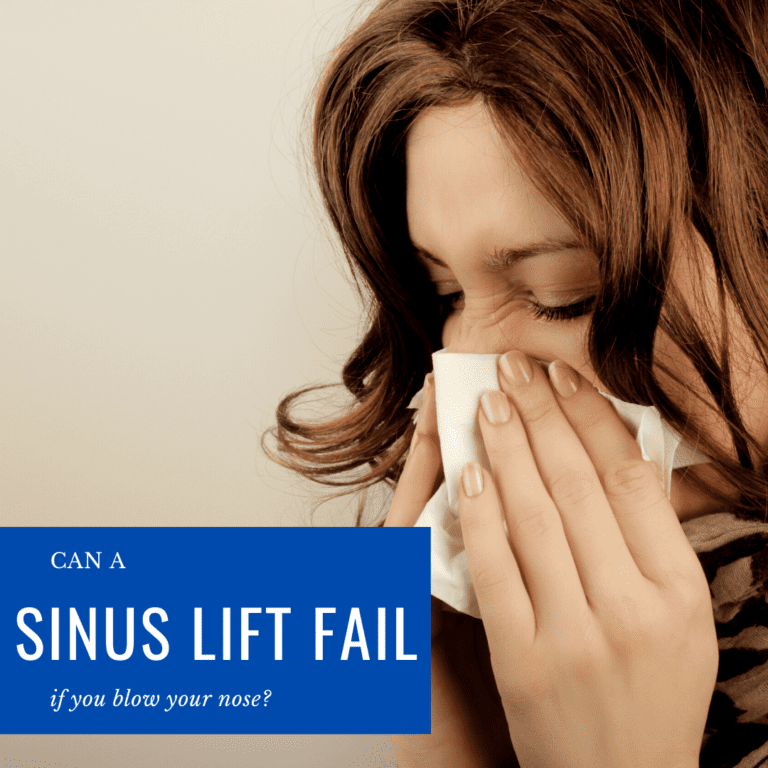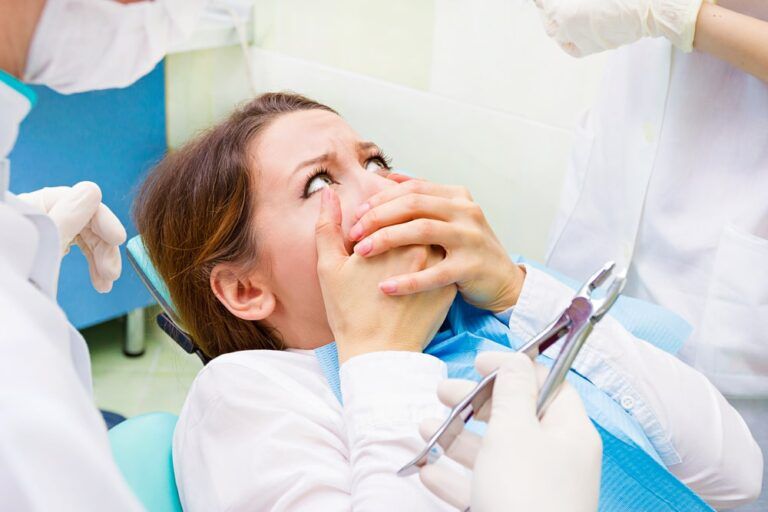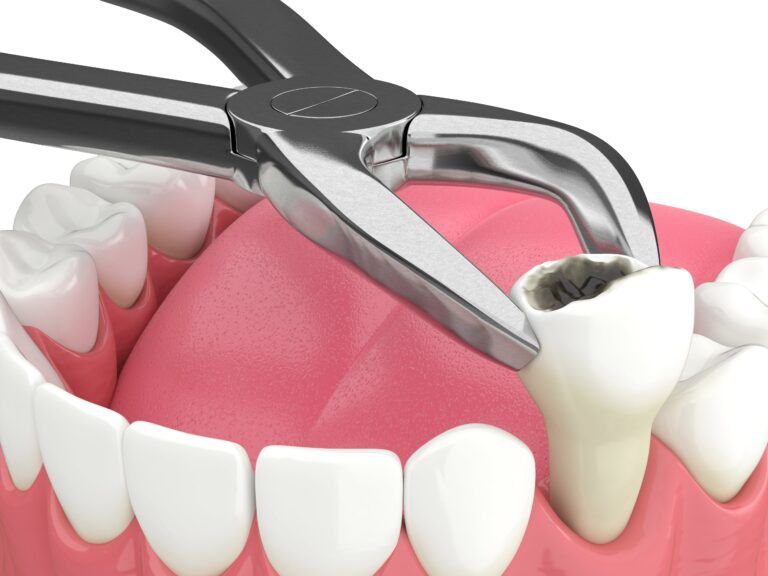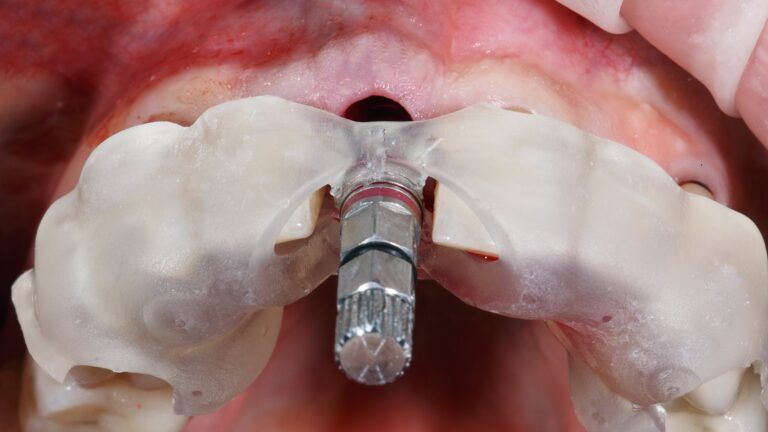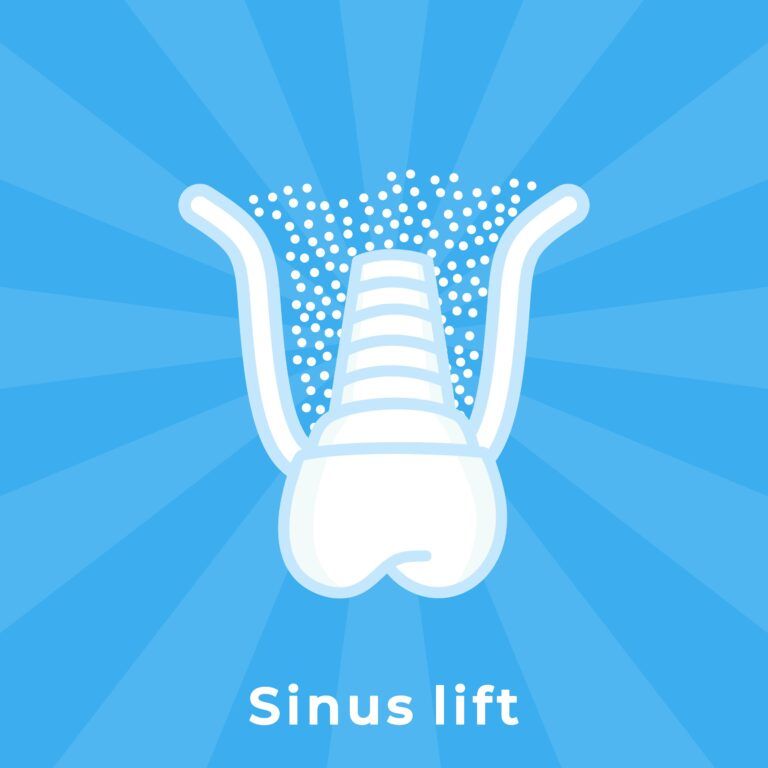After having dental implants placed, the last thing you want to do is accidentally jeopardize your recovery process. Since your implant dentist also wants you to have a successful recovery, they will provide you with postoperative guidelines that generally contain a list of what not to do during your recovery. Depending on the nature of your exact procedure, it is often recommended not to blow your nose after dental implant surgery, especially if you have had a sinus lift.
The main reason for this is because blowing your nose could cause a sinus lift to fail. If you had dental implants placed during the same procedure as a sinus lift, this could also result in dental implant failure. To understand why something as simple as blowing your nose could be catastrophic for your recovery process, we must look at some basic anatomy, the mechanics of the sinus lift procedure, and how a sinus lift can be affected by certain behaviors.

Dental implants can be placed in the upper or lower jaw. In regards to anatomy, placing implants in the lower jaw does not affect as many surrounding structures as it does to place implants in the upper jaw. When placing dental implants in the upper jaw, there are a few key structures that reside nearby. For starters, the nose resides just above the front teeth. The nasal passageway then connects to the maxillary sinuses on each side of the face. In relation to your mouth, your maxillary sinus cavities reside just above the molars.
Because the maxillary sinuses are located just above the molars, it is important to avoid damaging them while placing dental implants. This is where a sinus lift procedure comes in.
Sinus lifts are supplemental bone augmentation procedures performed when there is an inadequate amount of bone mass in the upper jaw. During a sinus lift, bone grafting material is placed in areas of low bone mass as a way to build up the thickness of the upper jaw, or “lift” the sinus cavity. In doing so, this reduces the risk that the implants will penetrate the sinus cavity.
Considering the fact that the upper jaw, nasal passages, and maxillary sinuses are so closely located to one another, let’s take a closer look at how these structures interact when you blow your nose. Since blowing your nose is such a routine activity, it is probably something that you have never given much thought. However, looking at what happens when you blow your nose helps to explain just why this simple activity can be potentially catastrophic after having a sinus lift placed.

When you blow your nose, the pressure in your nostrils increases so you can force out air, debris, and mucus. Increasing nasal pressure also increases sinus pressure. Since the bone graft is located just below the sinus cavity, an increase in sinus pressure can cause the bone graft material to shift, which would cause the procedure to fail. Sneezing while holding your nose can cause this same increase in pressure, which is why you are also encouraged to sneeze with your mouth open.
Although blowing your nose and sneezing while holding your nose are two of the most common ways that sinus pressure can be increased, there are other activities that should also be avoided since they also raise sinus pressure. These include things like scuba diving, flying in an airplane, lifting heavy objects, blowing up balloons, and playing musical instruments that require blowing. While it is usually recommended to avoid such activities for about 4-6 weeks after surgery, your implant dentist will let you know when you have healed enough to continue these activities without threatening your recovery.

Irfan Atcha, DDS, DICOI, DADIA at New Teeth Chicago Dental in Chicago, Illinois is a board-certified general dentist and a nationally recognized expert in dental implants, cosmetic dentistry, and sedation dentistry. Dr. Atcha is now serving patients in Naples, Bonita Springs and SW FL area with All-on-4 implants, teeth-in-a-day, same day dental implants and the complex zygomatic dental implants for the no-jaw bone solution approach. To schedule a consultation please email Dr. Atcha at teethforyou@gmail.com.

